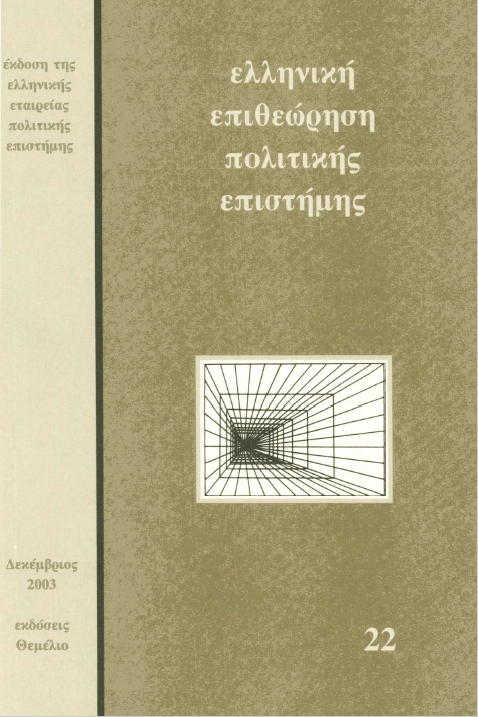From representative democracy to digital democracy: Democracy as a field of new politics
Abstract
Representative democracy and the democratic and social state and the rule of law are, without a doubt, the most significant institutional achievements of the last three centuries. Representative democracy and, more specifically, political representation is simultaneously the nucleus and the field of politics itself. However, in this age, the foundations of the representative system are unsteady, as its ability to function as the basic, reliable level on which society is synthesized, is being questioned. Many parallel systems for the representation of society have been formed and these act in competition with the democratic political system. These systems are mainly related to economic and communicational power, but also with single-issue agendas of “civil-society” organizations to the extent that these claim a political role. Gradually, the new symbolic fields for the composition of society are transferred from the parliament to the television news broadcasts and to the internet.
At the same time, with the multiplication and intensification of the actions of the “non-governmental organizations,” the “political man” is replaced by the “single-issue man” the latter whose political approach and actions are characterized by an approach that is very far from the “complex” political approach of the political parties, even when the latter have specific class and social approaches.
Despite all this, politics continues to be the single, available space in which the important problems of our age can be solved. These are linked with natural, ecological, social and economic dangers that demand the existence of an efficient mechanism of social, national, and international solidarity.
Article Details
- How to Cite
-
Βενιζέλος Ε. (2017). From representative democracy to digital democracy: Democracy as a field of new politics. Greek Political Science Review, 22(1), 30–52. https://doi.org/10.12681/hpsa.14744
- Issue
- Vol. 22 (2003)
- Section
- Articles

This work is licensed under a Creative Commons Attribution-NonCommercial-ShareAlike 4.0 International License.
Authors who publish with this journal agree to the following terms:
Authors retain copyright and grant the journal right of first publication with the work simultaneously licensed under a Creative Commons Attribution licence that allows others to share the work with an acknowledgement of the work's authorship and initial publication in this journal.
Authors are able to enter into separate, additional contractual arrangements for the non-exclusive distribution of the journal's published version of the work (e.g. post it to an institutional repository or publish it in a book), with an acknowledgement of its initial publication in this journal.
Authors are permitted and encouraged to post their work online (preferably in institutional repositories or on their website) prior to and during the submission process, as it can lead to productive exchanges, as well as earlier and greater citation of published work (See The Effect of Open Access).



